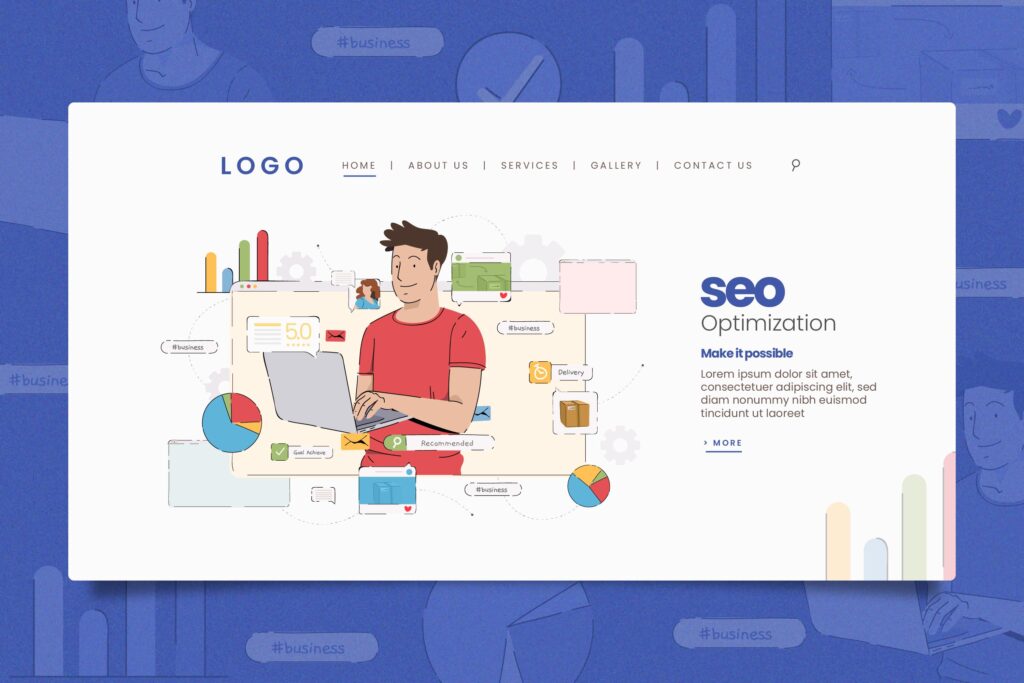In the competitive world of startups, achieving online visibility can be the key to success. With limited resources and a need to establish a strong presence quickly, startups must leverage every tool at their disposal. Search Engine Optimization (SEO) is one such indispensable tool. This ultimate guide to SEO for startups will help you understand the critical aspects of boosting your online visibility, with a special focus on the importance of having backlinks.

Understanding SEO: The Basics
SEO is the practice of enhancing your website to rank higher on search engine results pages (SERPs). The higher your site ranks, the more organic traffic it attracts. For startups, this organic traffic can translate into potential customers, brand awareness, and growth. Here are the fundamental components of SEO:
1. Keyword Research
Keyword research is the cornerstone of SEO. It involves identifying the words and phrases potential customers use to search for products or services similar to yours. Tools like Google Keyword Planner, Ahrefs, and SEMrush can help you find relevant keywords with high search volume and low competition.
Tips for Effective Keyword Research:
- Focus on long-tail keywords: These are longer, more specific phrases that users are likely to use when they are closer to making a purchase.
- Analyze your competitors: Look at what keywords your competitors rank for and incorporate them into your strategy.
- Use keyword variations: Don’t just stick to one keyword; use synonyms and related terms to cover more ground.
2. On-Page SEO
On-page SEO refers to the elements on your website that you can optimize. This includes content, HTML elements, and site architecture. Here’s how to enhance your on-page SEO:
Content Optimization:
- Quality Content: Create valuable, informative, and engaging content that addresses your audience’s needs. High-quality content is more likely to be shared and linked to. Read more about low quality content on the google site itself.
- Keyword Placement: Use your primary keywords in strategic places such as titles, headings, meta descriptions, and throughout the content. However, avoid keyword stuffing as it can lead to penalties from search engines.
HTML Elements:
- Title Tags and Meta Descriptions: Craft compelling and descriptive title tags and meta descriptions that include your primary keywords. These elements help search engines understand the content of your pages and improve click-through rates.
- Header Tags: Use H1 tags for your main titles and H2, H3, etc., for subheadings. This structure makes your content easier to read for both users and search engines.
Site Architecture:
- URL Structure: Keep URLs short, descriptive, and keyword-rich. A clean URL structure improves user experience and helps with search engine crawling.
- Internal Linking: Link to other relevant pages on your website to create a network of content that helps search engines understand the context and hierarchy of your site.

3. Technical SEO
Technical SEO focuses on the backend of your website, ensuring it is optimized for crawling and indexing by search engines. Here are some crucial aspects of technical SEO:
- Site Speed: A fast-loading site enhances user experience and is favored by search engines. Use tools like Google PageSpeed Insights to analyze and improve your site speed.
- Mobile-Friendliness: Ensure your website is responsive and performs well on mobile devices. With mobile searches surpassing desktop, this is non-negotiable.
- XML Sitemap: Create and submit an XML sitemap to search engines to help them discover and index your pages more efficiently.
- Robots.txt: Use the robots.txt file to guide search engine crawlers on which pages to index and which to avoid.
4. Off-Page SEO
Off-page SEO refers to actions taken outside your website to impact your rankings within SERPs. The most significant component of off-page SEO is building backlinks.
The Importance of Having Backlinks:
Backlinks are links from other websites to yours. They act as votes of confidence, signaling to search engines that your content is valuable and authoritative. High-quality backlinks can significantly boost your SEO efforts. Here’s how to build and leverage them:
- Guest Blogging: Write articles for reputable sites in your industry. In return, you’ll get a backlink to your website.
- Influencer Outreach: Collaborate with influencers and industry leaders who can share your content and link back to your site.
- Content Marketing: Create shareable content like infographics, videos, and comprehensive guides. When others share your content, they often link back to your site.
- Broken Link Building: Find broken links on other websites in your niche and suggest your content as a replacement. This is a win-win, as it helps the site owner fix a broken link while earning you a backlink.
5. Local SEO
For startups with a local presence, optimizing for local search is crucial. Local SEO focuses on increasing your visibility in location-based searches. Here are key strategies:
- Google My Business: Create and optimize your Google My Business listing. Ensure your information is accurate, complete, and regularly updated.
- Local Citations: List your business in local directories and ensure your NAP (Name, Address, Phone number) is consistent across all platforms.
- Local Keywords: Use location-specific keywords in your content and meta tags to attract local traffic.
6. Measuring and Analyzing SEO Performance
Regularly measuring and analyzing your SEO performance is vital to understand what works and what needs improvement. Use tools like Google Analytics, Google Search Console, and SEO software such as Ahrefs or SEMrush to track:
- Organic Traffic: Monitor the number of visitors coming to your site from search engines.
- Keyword Rankings: Track your rankings for target keywords to see if your efforts are paying off.
- Bounce Rate: Analyze the percentage of visitors who leave your site after viewing only one page. A high bounce rate may indicate that your content is not engaging or relevant.
- Conversion Rate: Measure the percentage of visitors who complete a desired action, such as making a purchase or filling out a contact form.

Conclusion
Boosting your online visibility through SEO is not a one-time task but an ongoing process. For startups, mastering SEO can mean the difference between obscurity and prominence in a crowded market. By focusing on keyword research, on-page and technical SEO, building high-quality backlinks, optimizing for local search, and continuously measuring your performance, you can build a robust online presence that attracts, engages, and converts your target audience.
Remember, SEO is a long-term investment. Patience and persistence, coupled with a well-executed strategy, will pay off in the form of sustained growth and success for your startup
